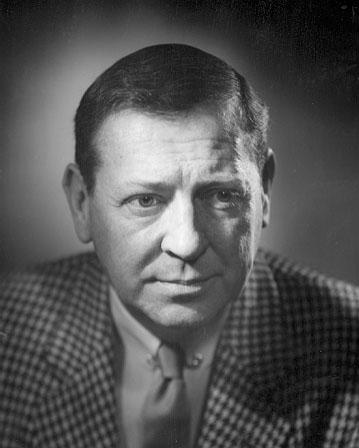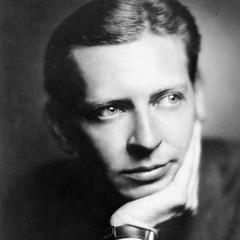Paul Horgan: A Literary Journey through Time and Space
 Paul Horgan, a name resonating with literary prowess and historical significance, stands tall in the pantheon of American writers. His works, spanning multiple genres and themes, encapsulate the essence of the American experience with a depth of insight and emotional resonance. From his early upbringing in New Mexico to his prolific career as a novelist, historian, and biographer, Horgan’s contributions have left an indelible mark on American literature. In this exploration, we delve into the life, works, and enduring legacy of Paul Horgan.
Paul Horgan, a name resonating with literary prowess and historical significance, stands tall in the pantheon of American writers. His works, spanning multiple genres and themes, encapsulate the essence of the American experience with a depth of insight and emotional resonance. From his early upbringing in New Mexico to his prolific career as a novelist, historian, and biographer, Horgan’s contributions have left an indelible mark on American literature. In this exploration, we delve into the life, works, and enduring legacy of Paul Horgan.
Born on August 1, 1903, in Buffalo, New York, Paul Horgan was raised in a culturally rich environment that would profoundly influence his writing. His family relocated to New Mexico when he was nine years old, immersing him in the vibrant tapestry of Southwestern culture and history. This fusion of Eastern roots and Western landscapes would become a recurring motif in Horgan’s literary endeavors, providing him with a unique perspective that infused his narratives with authenticity and depth.
Horgan’s literary journey began with poetry, a genre through which he expressed his profound connection to the natural world and the human condition. His early collections, such as "The Fault of Angels" (1933) and "Songs After Lincoln" (1939), showcased his poetic prowess and earned him critical acclaim. Through lyrical verses, Horgan explored themes of love, loss, and the eternal quest for meaning, establishing himself as a poetic voice of his generation.
However, it was in prose that Horgan found his true calling, weaving intricate tales that spanned epochs and civilizations. His magnum opus, "Great River: The Rio Grande in North American History" (1954), stands as a testament to his mastery of historical narrative. In this monumental work, Horgan chronicles the epic journey of the Rio Grande River, tracing its course from the ancient civilizations of the Native Americans to the modern era of European colonization and beyond. Through meticulous research and vivid prose, he brings to life the myriad characters and events that shaped the river’s destiny, offering a panoramic view of American history. In addition to his historical writings, Horgan distinguished himself as a novelist of extraordinary depth and insight. His novels, such as "A Distant Trumpet" (1960) and "Whitewater" (1980), delve into the complexities of human relationships and the clash of cultures in the American West. With keen psychological insight and a keen eye for detail, Horgan portrays the struggles and triumphs of individuals caught in the currents of history, their lives intertwined with the vast landscapes they inhabit.
In addition to his historical writings, Horgan distinguished himself as a novelist of extraordinary depth and insight. His novels, such as "A Distant Trumpet" (1960) and "Whitewater" (1980), delve into the complexities of human relationships and the clash of cultures in the American West. With keen psychological insight and a keen eye for detail, Horgan portrays the struggles and triumphs of individuals caught in the currents of history, their lives intertwined with the vast landscapes they inhabit.
Beyond his fiction and historical works, Horgan’s talents extended to the realm of biography, where he breathed life into the stories of notable figures such as Andrew Jackson and Willa Cather. His biographies, including "Lamy of Santa Fe" (1975) and "Citizen of New Salem" (1979), offer intimate portraits of these towering figures, shedding light on their personal struggles and contributions to American society.
Throughout his prolific career, Paul Horgan remained steadfast in his commitment to exploring the human experience in all its complexity. Whether through poetry, prose, or biography, he sought to capture the essence of America and its people, illuminating the timeless truths that bind us together as a nation.
Horgan’s legacy endures not only in the pages of his works but also in the hearts and minds of those who have been touched by his writing. His ability to transcend time and space, weaving together the threads of history and imagination, ensures that his voice will continue to resonate with readers for generations to come.
Paul Horgan stands as a towering figure in American literature, his contributions spanning multiple genres and themes. From his early explorations of poetry to his monumental works of history and fiction, he has left an indelible mark on the literary landscape, enriching our understanding of the American experience and the human condition. As we reflect on his life and legacy, we are reminded of the enduring power of storytelling to illuminate the past, inspire the present, and shape the future. In examining Paul Horgan's life and works, it becomes evident that his literary journey was not merely a reflection of his personal experiences, but a profound exploration of the broader human experience. His upbringing in the multicultural milieu of New Mexico instilled in him a deep appreciation for diversity and a keen awareness of the interconnectedness of cultures—a theme that permeates much of his writing.
In examining Paul Horgan's life and works, it becomes evident that his literary journey was not merely a reflection of his personal experiences, but a profound exploration of the broader human experience. His upbringing in the multicultural milieu of New Mexico instilled in him a deep appreciation for diversity and a keen awareness of the interconnectedness of cultures—a theme that permeates much of his writing.
One of Horgan's remarkable achievements lies in his ability to capture the essence of place. Whether describing the rugged landscapes of the American West or the bustling streets of New York City, his prose brims with vivid imagery and evocative detail. Through his keen observations and lyrical language, he transports readers to distant locales, inviting them to immerse themselves in the sights, sounds, and textures of each setting. Moreover, Horgan's writings often grapple with the complexities of identity and belonging. As a transplant from the East to the West, he navigated the tension between his Eastern roots and his deep affinity for the Southwest—a tension that finds expression in many of his works. In novels such as "A Distant Trumpet" and "Whitewater," Horgan explores themes of cultural clash and assimilation, probing the nuances of identity formation in a rapidly changing world.
Moreover, Horgan's writings often grapple with the complexities of identity and belonging. As a transplant from the East to the West, he navigated the tension between his Eastern roots and his deep affinity for the Southwest—a tension that finds expression in many of his works. In novels such as "A Distant Trumpet" and "Whitewater," Horgan explores themes of cultural clash and assimilation, probing the nuances of identity formation in a rapidly changing world.
Horgan's historical writings, particularly "Great River," reflect his fascination with the sweep of time and the enduring legacies of the past. Through meticulous research and narrative skill, he uncovers the hidden currents of history, revealing the interplay of individuals and events that have shaped the course of civilization. His ability to distill complex historical narratives into compelling stories speaks to his mastery of the craft and his dedication to bringing the past to life for contemporary readers. Furthermore, Horgan's commitment to the art of biography demonstrates his reverence for the lives of remarkable individuals who have left an indelible mark on the world. In works such as "Lamy of Santa Fe" and "Citizen of New Salem," he offers intimate portraits of historical figures, illuminating their struggles, triumphs, and enduring relevance. By delving into the personal lives of these individuals, Horgan reveals the human dimension behind the larger historical narrative, reminding us of the profound impact that individuals can have on the course of history.
Furthermore, Horgan's commitment to the art of biography demonstrates his reverence for the lives of remarkable individuals who have left an indelible mark on the world. In works such as "Lamy of Santa Fe" and "Citizen of New Salem," he offers intimate portraits of historical figures, illuminating their struggles, triumphs, and enduring relevance. By delving into the personal lives of these individuals, Horgan reveals the human dimension behind the larger historical narrative, reminding us of the profound impact that individuals can have on the course of history.
As we reflect on Paul Horgan's literary legacy, we are reminded of the transformative power of literature to broaden our horizons, deepen our understanding of the world, and forge connections across time and space. Through his poetry, prose, and biography, Horgan invites us to embark on a journey of discovery—a journey that leads us not only into the heart of America but into the depths of the human soul. In honoring his memory and celebrating his contributions, we pay tribute to a writer whose words continue to resonate with truth, beauty, and timeless wisdom.








































